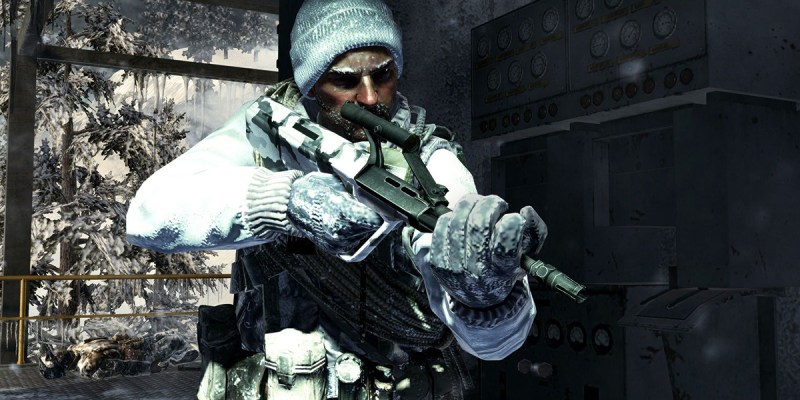If you regularly check the gaming news, you’re probably aware that PlayStation 3 / Xbox 360-era Call of Duty titles are currently enjoying a huge resurgence after the Xbox servers were fixed out of nowhere. Some fingers point at Activision, while others claim Microsoft is the company responsible for the repairs, maybe already planning ahead for a post-merger scenario. Regardless of why this happened, a pretty decent digital sale that includes those games has been lined up too, so player numbers are going crazy right now.
As someone who’s been casually following and enjoying this franchise for what it is since its inception, I seized this opportunity to grab the three games I didn’t own already (even though I put some hours into them back in the day): Modern Warfare 3 and Black Ops 1 and 2. Incidentally, they’re also the OG titles seeing the biggest surges in players, so this seemed like a good time to see how they hold up more than 10 years later.

Image via Activision Blizzard
Unsurprisingly, it’s been very fun to jump back into substantially less complex entries of Call of Duty. No seasons. No battle passes. No convoluted perk systems. Just good ol’ FPS action, which at this point feels nearly as nostalgic as booting up Quake 3. It’s all simple and straight to the point. Mind you, I’m not super critical of how Activision has been handling CoD in recent years besides some engine-related missteps and the fact that almost every studio under its wing is now stuck inside the military FPS mines. But quite often, you feel nostalgic about past entries of a long-running series only to find out they’ve aged like milk. That’s not the case here. And I haven’t even replayed their campaigns yet.
The online conversation surrounding these games has also led to some longtime fans starting to call old Call of Duty titles “arcade-like” experiences. And they’re definitely not wrong. The series never tried to be realistic or too complex when it came to the moment-to-moment gameplay, but it wasn’t a watered-down affair either. But still, going from the latest entries, with plenty of movement options and more intricate yet accessible gunplay, to past games, which feel way breezier and comparatively basic, totally justifies reevaluating them as arcade-ish.

Image via Activision Blizzard
The biggest difference is that I spent way less time inside menus and fine-tuning my classes and weapon builds. I instantly missed some of the modern features, but these games – mostly because of technical limitations, let’s not kid ourselves – relied way more on picking the right guns and perks for the right occasions. The fewer options you have, the more you have to step out of your comfort zone. Also: git gud. I appreciate how both Call of Duty and Battlefield validated more distinct play styles as time went on, but there’s something very pure about this type of FPS experience that has a clear idea of what it wants to do. And you either roll with it or you don’t. Again, the shadow of Quake looms large. I enjoy both approaches to FPS design, but AAA projects have almost completely forgotten about tighter offerings.
Persistent lobbies are another thing I didn’t know I missed so much. I’m not into the trash-talking that has always occurred inside them, but when your game doesn’t have dedicated community-run servers available, this way of grouping together players for long sessions is integral to developing a real sense of community and camaraderie. It’s also why so many of us are now perceiving these gigantic AAA releases from a decade ago as “smaller,” arcade-like, comfort food places. It’s easier to make both friends and enemies when the game isn’t constantly rebuilding lobbies. Older Halo titles also knew about the value of encouraging long-term online friendships, and there’s a good reason why Xbox 360 was considered the go-to console for competitive FPS gaming and chill (or competitive) vibes.

Image via Activision Blizzard
Going back in time also brings back several woes, such as servers that are hijacked by hackers or random disconnects because the P2P system craps out the moment the host’s connection stumbles only a little bit. We’ve come so far in many aspects. That’s why I normally scoff at players who straight-up go, “Man, everything about old Call of Duty releases was better.” No, it wasn’t. Some of their design philosophy should’ve been kept around for sure, but at the same time, I’m all for roomier maps, more flexible customization options, and an actual server infrastructure that reflects all the money these games make.
The bottom line, I guess, is that you should definitely give these older Call of Duty games a try if you have access to an Xbox console at the moment. They’re bound to blow up in popularity once the Microsoft-Activision deal goes through and they’re added to Game Pass’s retro catalogue, but these warm summer days seem perfect for an improvised trip down memory lane that can remind us of why we got into online shooters in the first place.
